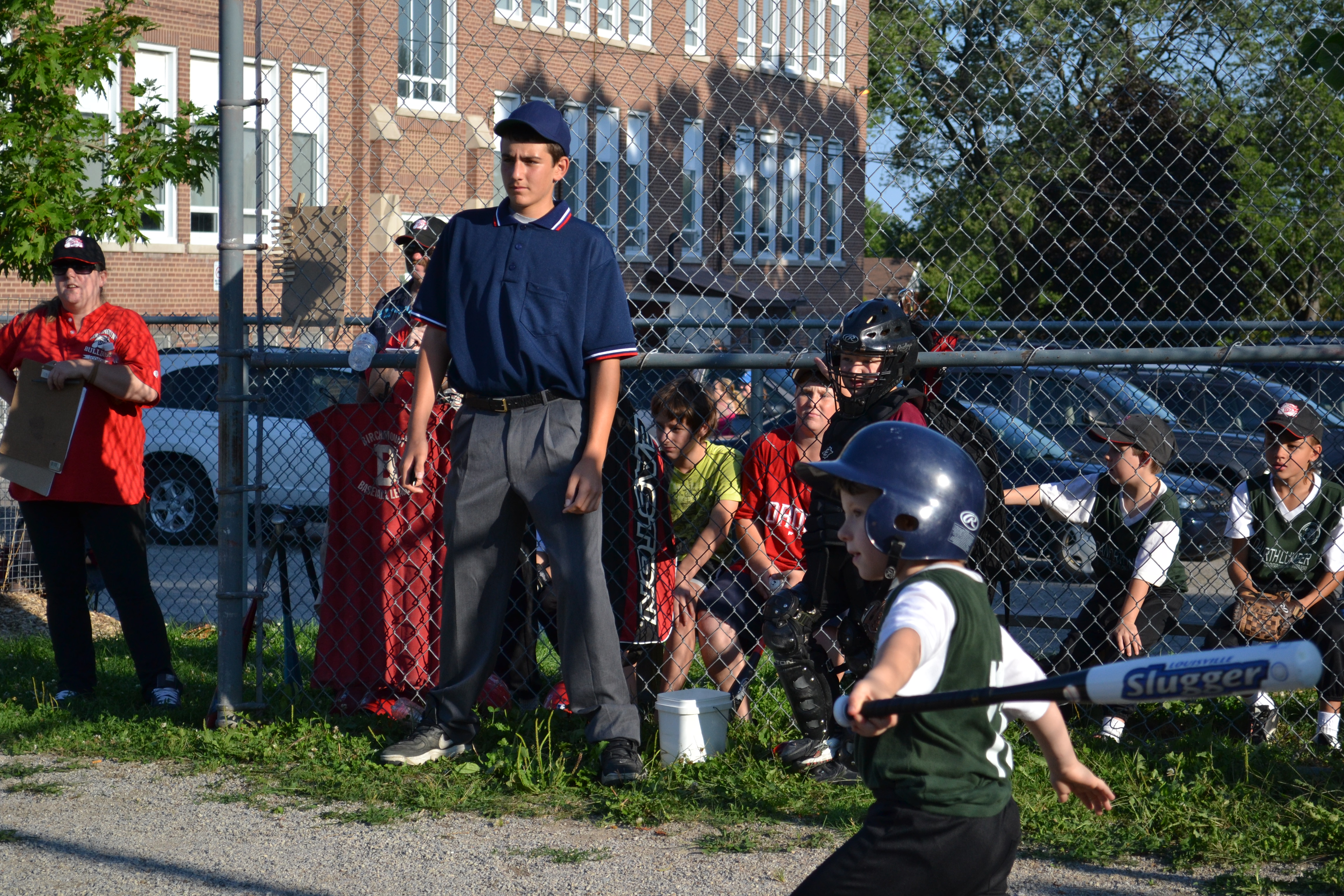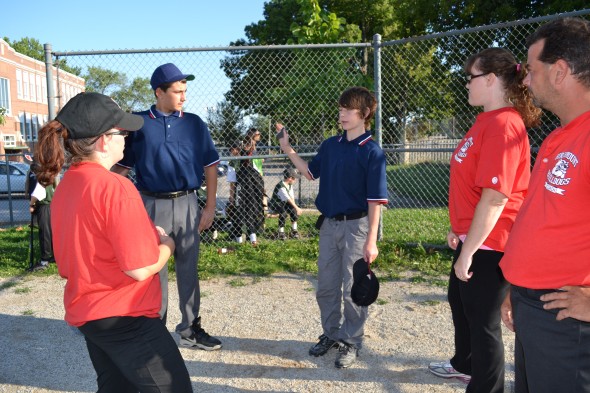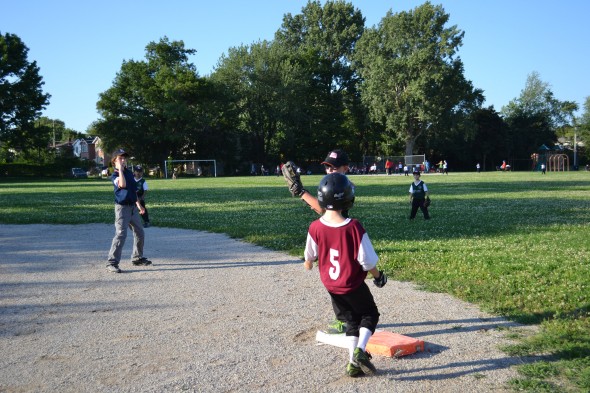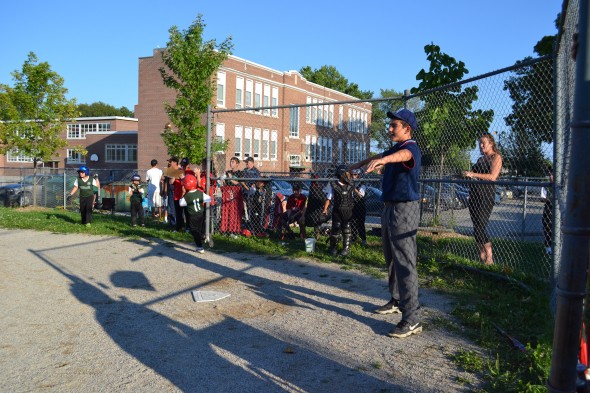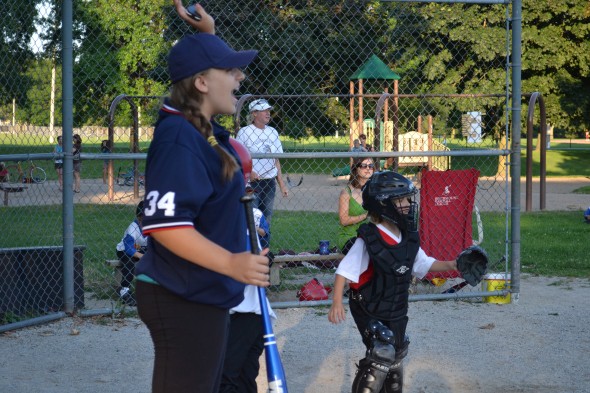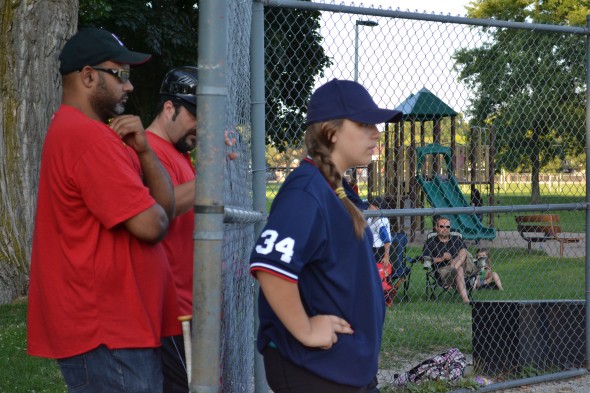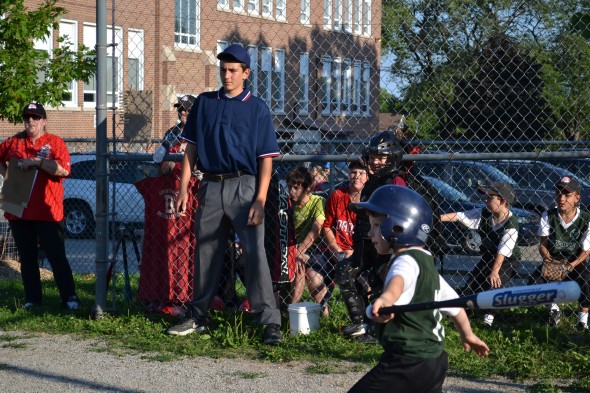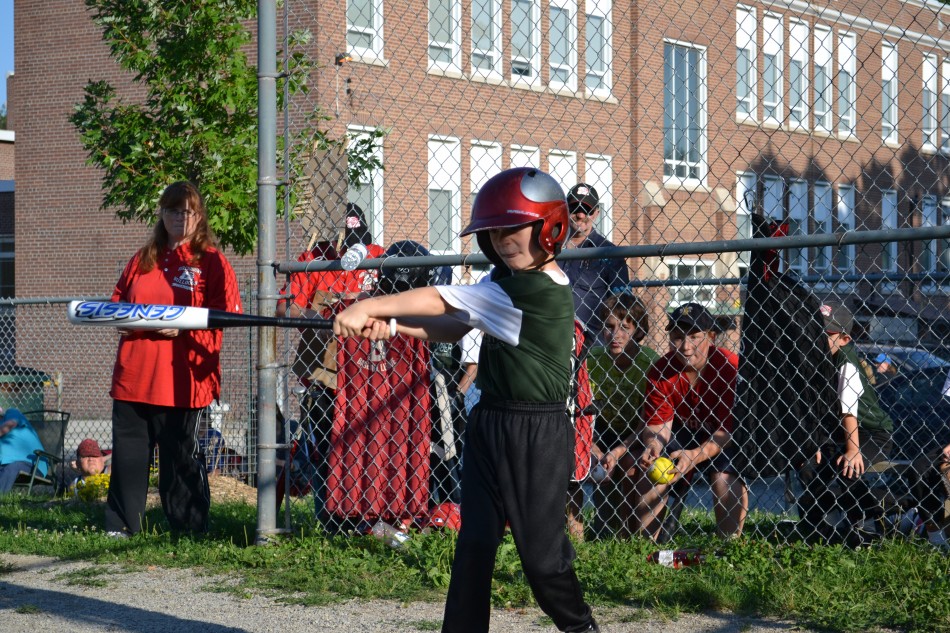By Penny Harbin
Birchmount Baseball League has a group of young people who are a critical piece of every single game that is played, but are not on either team playing. Who are they? The umpires!
Most games are played with two umpires – one at home plate and one on the bases. (T-Ball games for the younger kids only require one umpire.) The umps are responsible for managing the entire game – starting it, timing it, making calls according to the rules, ensuring players are playing safely, crowd (or coach!) control, communication with score-keepers and teams. They have to be fair and impartial, consistent with their strike zones, confident when making calls, and stay on task and focused for the entire game.
Umpires as young as 12
The kids who take on this role are as young as 12, and many continue to umpire well into adulthood. Many kids also play baseball, from House League to Varsity, and some continue to umpire after their playing days are done, being assigned higher level games as their skills and experience improve.
Why do they do it? There’s no glory, no championship to win, no fans cheering you on, no team party, no “MVU” award. 13-year old Scott Bridger says he umpires because of his passion for the sport:
“I always enjoyed watching (and playing) baseball and I thought maybe I could umpire, make some money and maybe watch kids now maybe make MLB some day.”
Pay starts at $15 a game
They do get paid, and for many umpires this is a big motivator. Game fees start at $15 and increase with an umpire’s experience and level of officiating. They get trained – all the kids have at least Level 1 umpire skills, and some have completed courses for Level 2 and Level 3 accreditation.
For 12-year old Dmitri Stamatopoulos, who also plays Peewee House League and Select , the money is secondary:
“I don’t really care about the money. I’m just doing it because I love baseball and umpiring.”
They also do it to stay involved with baseball and to give back to the league and the sport in which they had been playing since childhood.
That’s the motivation for 14-year old Julie Hook, who says she followed in the footsteps of her father, uncle and sister who all worked as Birchmount umps:
“I umpire to help the little kids learn the rules of baseball,” Hook says. “I think it’s good for kids to get out of the house and do something for the summer.”
The flip side to this is how hard it is to call a little T-Ball player “out” and see the disappointment on their face! Some umpires told me they like to make jokes with the kids at bat or on base – just one on one remarks to make them laugh and ensure the game was fun.
Playoff time
The BBL umpires all hope to be assigned to play-off and championship games at the end of the season (playoffs started July 30, with championship games on the weekend of August 11/12). There is much rejoicing when you hear you are going to work the Mosquito or Peewee final game, and you never forget your first play-off experience. Heightened interest and excitement among the teams for play-offs and finals, and more fans, makes for an exciting umpire assignment, with a little more pressure on the officials to do a really good game. These games often get a three-man crew too – moving a little closer to how it’s done in the majors.
It takes confidence
Decisions have to be made quickly and firmly, and without any discussion – you cannot change your mind on whether a ball is fair or foul, so you have to watch carefully, 100% of the time. You also get yelled at! Coaches, fans, players do not hesitate to make their feelings known if a call does not go the way they feel it should. Top officials have trained themselves to not even hear the crowd noises or comments around them, let alone listen or react to them.
Benefits of umping
However, the benefits are numerous. First of all, the younger kids get to earn some money, often for the first time with their first summer job. They can be proud of their efforts, become more responsible, and start to learn basic money management skills. Kids also learn to talk coherently to adults and other kids as they make calls and manage the game. They become more self-confident, learn to stand by their decisions, deal with conflict, and overcome resistance. Umpiring is a skill that can turn into a life-long hobby – many adults umpire on a regular basis because they love the game, it gets them outside, keeps them busy and active, and the extra money is always nice!
Applaud the players and the umps!
Umpires are a critical component to any baseball game, and the kids who get involved should be applauded for their commitment to the game, and for taking on a potentially difficult task. People love to criticize officials of any sport, but it’s important to remember these are young developing members of our community, who are usually having fun doing a very important job. Let’s hear a cheer for the umpires!

